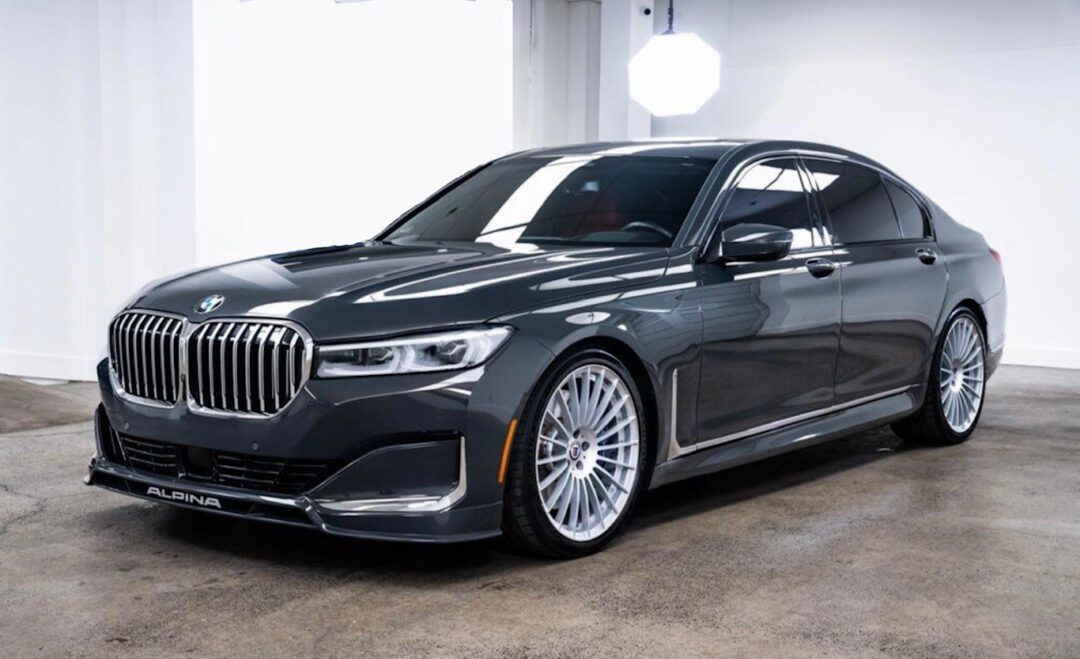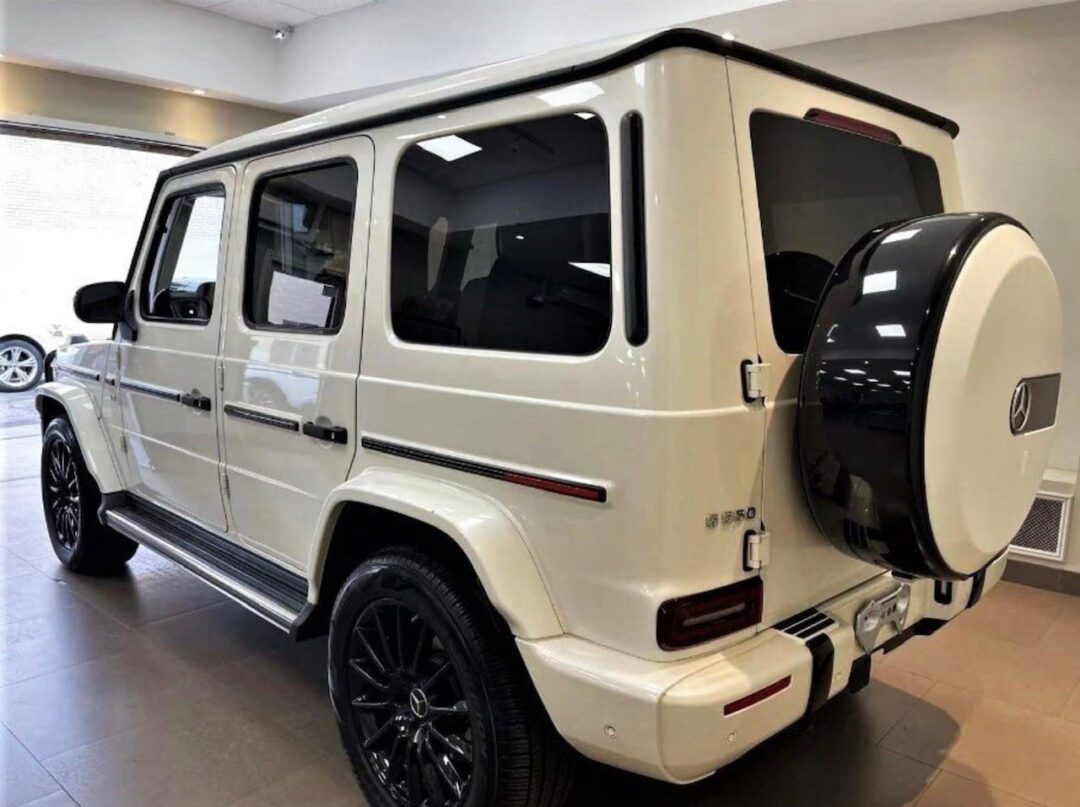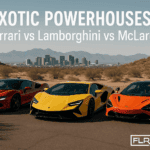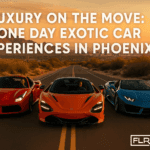Top Selling Luxury Car Brands in the US
In this article, we explore the thriving luxury car market. Let’s shed light on the top selling luxury car brands in the USA that dominate American roads.
Focusing on top selling models, we’ll navigate the extravagance and performance defining these automotive masterpieces. Come on a journey through the distinguished facets of the American luxury car scene, where sophistication harmonizes with innovation on the open road.

Source: fisherluxuryrental.com
Overview of Luxury Car Brands in the USA
These exotic luxe car brands represent the epitome of opulence on American roads, each contributing a unique blend of history and innovation to the discerning automotive market.
Mercedes-Benz
Mercedes-Benz is a well-known luxurious car manufacturer with a long history from the late 19th century. The brand is synonymous with innovation, engineering excellence, and elegance. Its commitment to cutting-edge technology and elegant design has solidified its status as a premiere car maker.
Mercedes-Benz significantly influences the USA, offering a diverse range of vehicles. Its market share is notable, with a substantial precedence in the luxury sedan and SUV segments.
BMW
BMW has a rich history that revolves around its emphasis on performance and precision engineering. The “Ultimate Driving Machine” has become a symbol of divine pleasure, combining sportiness with extravagance. BMW is known for its focus on innovation and providing exciting driving experiences.
BMW has a significant share of the luxury car market. They have a range of models to suit different preferences, from sporty convertibles to luxurious SUVs. The brand has an impact on driving dynamics and automotive design trends.
Audi
Audi, whose roots trace back to the early 20th century, is known for its dedication to progressive design and cutting-edge technology – its Quattro all-wheel-drive system and commitment to its esteemed reputation.
Audi has gained prominence in the luxury car market, focusing on performance and a range of well-received sedans, SUVs, and sports cars. Its innovative approach to automotive technology enhances its influence among luxurious car enthusiasts.
Lexus
Introduced by Toyota in the late 1980s, Lexus has earned a reputation for reliability and luxurious comfort. Lexus cars are widely known for their remarkably smooth rides and high-end interiors.
Lexus has carved a niche in the premium market, especially in premium SUVs and hybrid vehicles. It holds a notable market share, attracting customers with its emphasis on refinement.
Cadillac
Cadillac, an American luxury icon, has a legacy dating back to the early 20th century. Known for bold designs and pioneering innovations, Cadillac has played a significant role in defining luxury in the USA.
Cadillac’s influence is deeply rooted in American automotive history. The brand has diversified its lineup with luxurious SUVs and sedans to capture a broad audience. While facing challenges, Cadillac remains a significant player in the luxe segment.
Tesla
Tesla, founded in 2003, has transformed the automotive industry with its focus on electric vehicles (EVs). Tesla is known for its unique cars’ performance, innovation, and autonomous driving capabilities.
Tesla has disrupted the luxury car market with its electric offerings, gaining a significant market share. The brand’s influence extends beyond traditional luxury, appealing to tech-savvy consumers embracing sustainable transportation.
Top-Selling Luxury Car Brands in the USA
In 2022, Tesla proved to be the leading luxury car brand in the US, selling nearly 484,400 units, surpassing its closest competitor, BMW, which sold over 327,900 vehicles. These figures highlight Tesla’s dominance in the US luxury car market.
- Tesla – 484.35
- BMW – 327.93
- Mercedes-Benz – 269.51
Luxurious cars in the US generated $7.4B in revenue in 2022, projected to grow in 2023. The US leads the global luxury auto market, with over double the sales of Germany. BMW leads the market but has less than a quarter of regional sales. Luxurious cars make up 5.3% of US light vehicle demand, while crossovers hold //almost half the market.
Factors Influencing Luxury Car Sales in the USA
Several factors influence the top selling luxury car brands in the USA.
Economic factors
- Income levels – Luxe car sales are closely tied to overall economic prosperity. During periods of economic growth, higher disposable incomes may lead to increased demand for luxury vehicles.
- Interest rates – Interest rates can impact consumer financing costs. Low interest rates might encourage borrowing for luxe car purchases, while high rates could have the opposite effect.
Consumer trends and preferences
- Shift toward SUVs and crossovers – The rising popularity of SUVs and crossovers has influenced luxury car sales. Consumers often prefer large, versatile vehicles with advanced features.
- Technology integration – High-tech features, including advanced infotainment systems, autonomous driving capabilities, and connectivity. Significantly influence consumer choices in the luxe segment.
- Sustainability – Increasing environmental awareness has prompted a growing interest in luxury electric vehicles (EVs) as consumers seek more sustainable options.
Regulatory environment
- Emission standards – Stringent emission standards and regulations promoting environmental sustainability. It can shape the luxury car market by influencing the types of vehicles brands offer, subsequently impacting consumer choices.
- Incentives for electric vehicles – Government incentives, such as tax credits for electric vehicles, can impact the sales of luce electric cars.
Impact of competition
- Brand reputation – Established luxury brands with a history of quality and innovation tend to maintain strong sales. Brand reputation heavily influences consumer trust and purchasing decisions.
- New entrants and disruptors – New entrants, especially those introducing innovative technologies (e.g., Tesla with electric vehicles), can disrupt traditional luxury markets and affect sales for established brands.
- Global market dynamics – Economic trends and competition can influence luxury car sales. Changes in demand in other regions may impact production and pricing strategies.
Cultural and social influences
- Changing lifestyles – Evolving lifestyles and preferences, such as urbanization trends and a desire for more experiential luxuries, shape consumer demand.
- Digital influence – Social media and digital platforms significantly influence luxury car trends, allowing brands to connect with consumers and showcase their products in new ways.

Source: fisherluxuryrental.com
Conclusion
As we peer into the future, sustainability and technological innovation will likely be pivotal in shaping the luxury car market. The top selling luxury car brands in the USA, including Mercedes-Benz, BMW, and Tesla, continue to define automotive sophistication.
These brands have managed to captivate consumers by offering luxurious designs, performance, and cutting-edge technology. The future looks promising with luxury, performance, and eco-conscious design. It sets the stage for an exciting new chapter in the ongoing story of automotive excellence.





